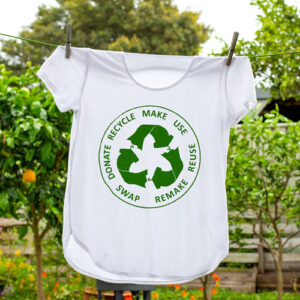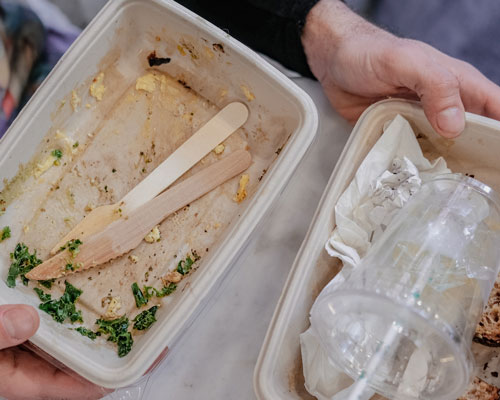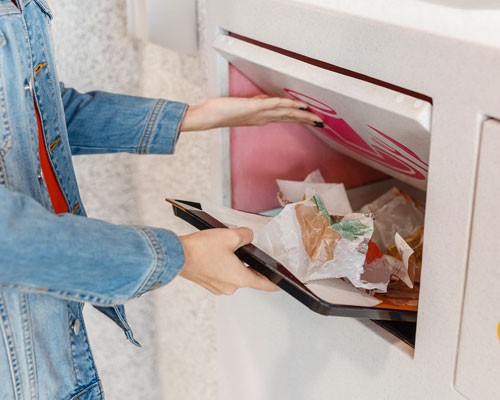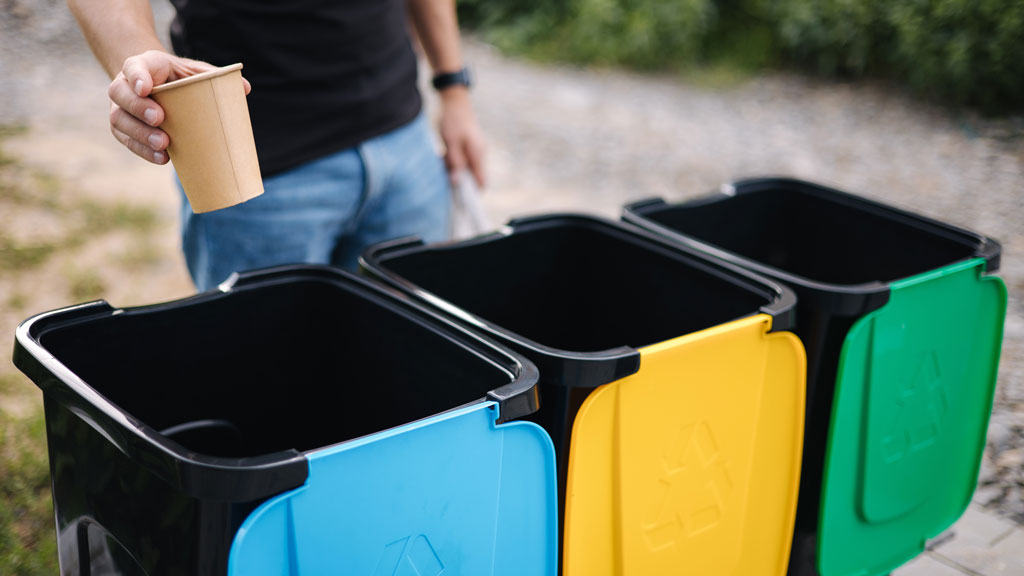7/21
How do closed-loop facilities contribute to a more sustainable world?
One of PBPC’s primary goals is to advocate for policies and programs that advance a shift to a more circular economy. Our Setting the Record Straight blog series has often discussed the environmental and economic benefits of a circular economy – in fact, our very first blog post discussed how plant-based products and materials can play a part in the circular economy. Now, we’ll discuss how “closed-loop systems” have a role in helping businesses, facilities, and stadiums become more circular.
What is a circular economy?

First, let’s remind ourselves what a circular economy is. According to the Ellen MacArthur Foundation, circular economies are guided by three principles:
- Design out waste and pollution
- Keep materials and products in use
- Regenerate natural systems
When these principles are achieved, products in circular economies are not wasted and have an extended useful life. This means that renewable resources are used for energy, chemicals, and materials; instead of becoming garbage, these materials are reused, repurposed, or recycled. Compostable or recyclable products made from plants are often an important part of advancing circularity of products.
Circular Economy in Action
Closed-loop systems can be viewed as real-life, smaller examples of the circular economy in action. Venues and events such as stadiums, schools, and festivals often have tight control over the food and packaging allowed to be brought into or sold at their location, along with the ensuing waste generated. These venues and companies connect the entire packaging value chain to ensure compostable products are composted and recyclable products are recycled, helping to realize zero waste goals.
Closed-Loop Systems

One example of a closed-loop system in action can be found at the Bonnaroo Music & Arts Festival. By partnering with PBPC member Eco-Products, Bonnaroo was able process 180 tons of food waste and service items associated with it, like cups, plates, and utensils, into compost. All utensils and packaging at Bonnaroo are compostable, meaning attendees don’t need to separate uneaten food from the plate before putting trash into compost bins. At the end of the festival, Bonnaroo collected and processed this waste onsite and used the resulting compost around the festival grounds, keeping the area growing for future events.


CenturyLink Field, home of the Seattle Seahawks, has also announced a partnership with Eco-Products as a way to adopt closed-loop practices. Now, fans can put all plates, bowls, utensils, and uneaten food into any compost bin at the arena. Not only does this practice increase ease for consumers, but it minimizes contamination for composters to help turn as many products as possible into soil.
Upcycling

Closed loop facilities also offer an opportunity to create an upcycling model for plastic and other recyclable materials. SC Johnson teamed up with the Liverpool Football Club to recycle over 500,000 plastic bottles per year as part of a closed loop system. Fans attended Liverpool Football Club games will be able to place plastic bottles in specialized bins, which will then be used to create new bottles for SC Johnson products. This model has already seen success at stadiums in Milwaukee, allowing the company to develop 100% post-consumer recycled bottles in North America.

Increased use of plant-based products is an exciting opportunity for companies and facilities to improve and further their own closed-loop systems. Many plant-based products are recyclable or compostable, providing sustainable end-of-life options to help create a circular process. And plant-based products have their own environmental benefits. For example, feedstocks grown to create plant-based materials remove carbon dioxide from the environment during their growth phase, helping lessen the amount of greenhouse gases in our environment.
How can you help?

There are many ways to promote and practice circularity in your own life. All consumers can make more educated, conscious choices when it comes to product disposal. When the useful life of a good has ended, take the time to learn more about if the product is compostable or recyclable – and how to dispose of the product accordingly. You can also help advocate for more responsible waste management systems by encouraging your policymakers to support better composting and recycling infrastructure. Sign up for alerts from PBPC to stay informed on all the latest waste management legislation updates.
Closed-loop systems give us an exciting glimpse of the circular economy in action. With increased updates to our country’s waste management systems, we can bring these benefits to even more companies and communities nationwide.
